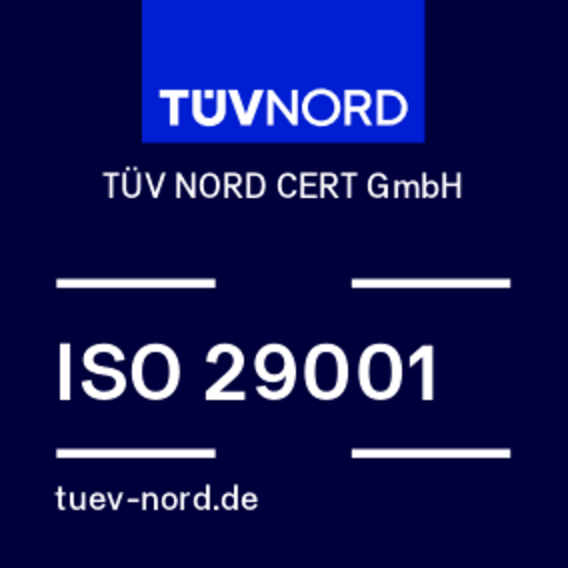
ISO 29001: Quality management for oil and gas
When selecting their suppliers and cooperation partners, large companies in the petroleum, petrochemical and natural gas industries are increasingly focussing on industry-specific certification of their quality management systems. This is a supplement to the DIN EN ISO 9001 standard specifically for this industry.
TÜV NORD offers this specific service for suppliers, engineering offices as well as extracting and producing companies in the oil and gas industry .
The accredited certification is based on the ISO 29001 standard and defines the requirements for a quality management system for the development, production, installation and maintenance of products and services in the petroleum, petrochemical and natural gas industries. The standard was developed by ISO and the international oil and gas industry - led by the American Petroleum Institute (API) - with the aim of defining clearly auditable requirements. The prerequisite for participation in certification is the introduction of a management system in accordance with ISO 9001 and ISO 29001.